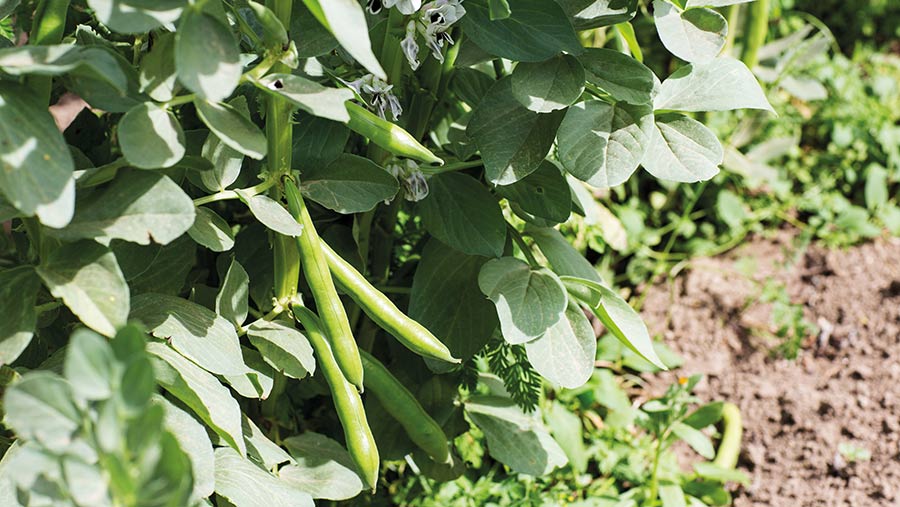Rising demand for feed beans, but poor yields put off growers
 © makis7/Adobe Stock
© makis7/Adobe Stock An uplift in demand for faba beans due to good export opportunities and increased use in animal feed in the UK are firming up domestic prices.
However, growers at the NFU Conference in Birmingham this week warned that a combination of reduced yields, higher input costs, the loss of several key fungicide and herbicide products, and better returns through the Sustainable Farming Incentive are putting them off growing beans, which is limiting plantings.
Steve Belcher of the Processors and Growers Research Organisation said the current area of winter and spring beans stands at about 210,000ha.
See also: Growing premium for new-crop over current low wheat prices
He added that the industry had seen a gradual decrease in yields for beans in recent decades.
UK bean production is estimated at 672,000t for 2023-24, based on a yield of 3.2t/ha.
Bean demand
Meanwhile, total demand is forecast for the year at 680,000t, with UK feed use accounting for 435,000t of this.
Spot prices for ex-farm feed beans averaged £234/t on 21 February, with a range of £226-£240/t.
Andy Bury, pulse manager at Frontier, told Farmers Weekly they had held their value really strongly compared with cereals values.
“You’ve got wheat values trading down at £155-£160/t, but beans have held up remarkably well, and that’s all about the domestic demand that is holding the market up.”
He said much of this demand was coming from UK ruminant compound feed mills and poultry feed, as well as more interest from Egypt, which is looking for new supplies due to disruption to its existing shipping routes.
Looking forward, new-crop prices are currently put at about £230/t ex-farm, according to Mr Bury, but he added that price gains were limited by competition with mid-range proteins such as rapemeal.
